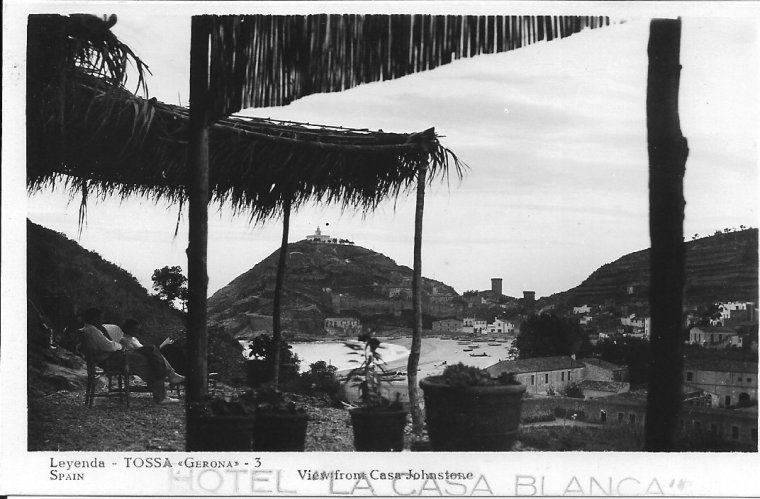Nancy Johnstone moved to Spain in the 1930s to set up a hotel and escape her London life
Moving to Spain to escape rain-soaked home shores has long been a dream for many Brits, but one woman made this a reality decades before it became fashionable.
Bored with life in London, and seduced by the charms of a small Costa Brava town, Nancy Johnstone persuaded her journalist husband Archie to give up everything to move to Iberia.
In 1934, when Spain was on the point of erupting into civil war, the couple bought a property which was to become El Hotel de los Ingleses (The Hotel of the English) in the resort town of Tossa de Mar.
At the time, there were no other British hotel owners in the area. When the war broke out two years later, their hotel continued to attract British journalists and tourists from across Europe. However, it quickly turned into a refuge for children whose parents were fleeing the fighting.
Johnstone’s idealism and bravery are celebrated in a new book about the colourful characters who populated the Costa Brava. From Hollywood stars like Elizabeth Taylor to writers like Tom Sharpe and even the Hitler Youth, Mad for the Costa Brava details the remarkable characters who soaked up the sun in this northeastern corner of Spain.

Francesc Ribes, the book’s author, said Nancy Johnstone was in her 20s when she convinced her husband to give up his job with the News Chronicle paper to move to Spain. “The hotel was popular with some British tourists even up to 1936 as well as with German Jewish refugees who had fled the persecution of Hitler,” he told The i Paper.
He added: “What makes her unique is that she came out to Spain not for the war, like people like George Orwell, but for love of the country. She was also one of the few Britons who lived in Spain at the time of the war, so had an unusual point of view.”
Ribes said that the Costa Brava of the 1930s, when Nancy Johnstone arrived, “was not at all the touristy place it is today. The only foreigners who went there had their own houses. Most villagers lived from fishing”.
Johnstone later wrote two books about her time in Spain. The first, Hotel in Spain, which was published in 1937, was an insight into the struggles Spaniards faced as the war worsened. Two years later, Hotel in Flight was a more bitter look at the way Britain failed to help the democratically-elected government of Spain, which fell to fascist dictator General Francisco Franco, and the desperate Spanish refugees held in camps in France.
In 1936, Johnstone and her husband refused to flee when a Royal Navy destroyer arrived to take any Britons to safety. But after the victory of Franco in 1939, the couple fled to France. Johnstone then moved to Mexico while her husband returned to London – and their marriage broke up.
Archie, a communist, went on to work at the British Embassy in Moscow before defecting to the Soviet Union. He died in 1978.
In 1951, Johnstone returned to Spain but was disgusted with the Franco dictatorship and sold the hotel.
David Moré, the municipal archivist in Tossa de Mar, told The i Paper that Johnstone left Mexico and moved to Guatemala before finally making her home in Brazil. Her movements afterwards are unknown.
Moré said that Johnstone was “a highly principled woman who gave up everything to come to Spain and helped its people, particularly the children, when they were desperately in need”.
